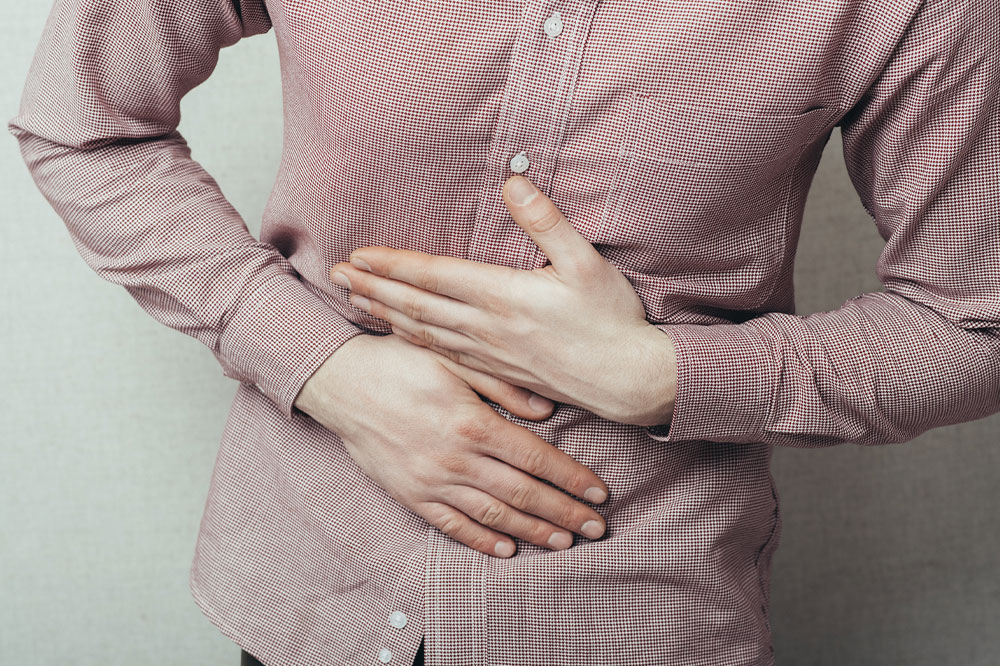Comprehensive Guide to Alleviating Constipation Naturally and Effectively
This comprehensive guide offers effective strategies to prevent and treat constipation naturally. It emphasizes the importance of increasing dietary fiber, staying well-hydrated, maintaining an active lifestyle, and understanding medical options for persistent cases. Suitable for those seeking to improve their digestive health, this article provides practical tips and detailed advice to promote regular bowel movements and overall gastrointestinal wellness.

Comprehensive Strategies for Managing and Relieving Constipation
Constipation is a common gastrointestinal problem characterized by infrequent, difficult, or painful bowel movements. It occurs when stool moves too slowly through the digestive tract, leading to excessive water absorption in the intestines, which results in dry, hard stools. According to the National Institute of Diabetes and Digestive and Kidney Diseases (NIDDK), constipation is typically diagnosed when bowel movements occur fewer than three times per week. While occasional constipation can happen due to various factors, persistent issues require targeted interventions to restore normal bowel function and improve quality of life.
Understanding the causes, symptoms, and effective treatment options for constipation is crucial for maintaining digestive health. This comprehensive guide explores practical and scientifically backed strategies to prevent and relieve constipation through lifestyle modifications, dietary changes, and medical options where necessary.
Dietary fiber plays a pivotal role in maintaining regularity and promoting healthy bowel movements. Increasing fiber intake adds bulk to the stool, making it softer and easier to pass. The recommended daily fiber intake for adults ranges between 20 to 35 grams. Achieving this requires incorporating a variety of high-fiber foods into your daily diet gradually to prevent bloating or gas. Consistent consumption of fiber-rich foods is a cornerstone of constipation management, along with adequate hydration and physical activity.
Healthy sources of dietary fiber include:
Whole grains such as oats, barley, and whole wheat products
Bran cereals, breads, and oats
Brown rice and fortified cereals
Fresh fruits like apples, pears, bananas, and berries
Vegetables including carrots, Brussels sprouts, asparagus, and leafy greens
Dried fruits such as prunes, apricots, raisins, and figs
Legumes like beans, lentils, and chickpeas
Hydration is equally critical in preventing and alleviating constipation. Drinking plenty of water keeps stool soft and easier to pass. The general recommendation is to drink at least 8 cups (about 2 liters) of water daily, but individual needs may vary based on activity level, climate, and health conditions. Herbal teas, infused water with cucumber or ginger, and clear broths are also beneficial in supporting hydration.
Physical activity stimulates intestinal motility, helping to promote regular bowel movements. Regular exercises such as brisk walking, jogging, swimming, or cycling can significantly improve digestive health. Incorporating these activities into your daily routine can not only prevent constipation but also enhance overall well-being.
In addition to lifestyle and dietary changes, certain foods can aid in promoting regularity. Fruits with high water and fiber content, such as watermelons, oranges, and berries, are excellent choices. Dried fruits, especially prunes and apricots, contain sorbitol—a natural laxative. Vegetables like carrots, Brussels sprouts, asparagus, and beans supply fiber and water to help keep your digestion on track.
To optimize bowel health, consider these practical tips:
Engage in daily physical activity, starting with short walks and gradually increasing duration and intensity.
Maintain adequate hydration by drinking water throughout the day and avoiding dehydrating beverages like alcohol and excessive caffeinated drinks.
Establish a consistent bathroom routine, ideally at the same time each day, to train your body to have regular bowel movements.
Use a footstool to elevate your feet while sitting on the toilet, mimicking a squatting position which can facilitate easier stool passage.
Avoid foods low in fiber and high in fats or processed ingredients, such as fast foods, cheese, and greasy snacks, which can exacerbate constipation.
Incorporate high-fiber foods into your diet from breakfast, like cereals or bran muffins, and include fruit snacks or salads mid-day to keep fiber intake consistent.
Sometimes, dietary and lifestyle adjustments alone may not suffice, and supplements or medical interventions might become necessary. Fiber supplements, such as Psyllium husk (Metamucil) or methylcellulose (Citrucel), are effective in increasing stool bulk when consumed with sufficient water. These should be used under medical guidance, especially if you have pre-existing health conditions.
Other options include over-the-counter remedies like glycerin suppositories or stool softeners. For more persistent cases, osmotic laxatives, stool softeners, or stimulant laxatives may be prescribed by healthcare providers to stimulate bowel movements. It’s essential to use these medications cautiously and under supervision to avoid dependency or adverse effects.
Below are common types of laxatives and their usage:
Bulk-forming laxatives (e.g., Metamucil, Citrucel): These absorb water and form a gel-like substance, softening stool and increasing its size. They are generally safe for daily use but require adequate water intake to prevent bloating or cramping.
Saline laxatives (e.g., Milk of Magnesia): These draw water into the intestines, softening stool and promoting easier evacuation. Best used occasionally as directed.
Lubricant laxatives (e.g., Fleet lubricants): These coat the stool and intestinal walls, making defecation easier. Use sparingly and under medical advice.
Osmotic laxatives (e.g., polyethylene glycol solutions): Retain water in the bowel to soften stool. Use with caution in diabetic patients due to potential electrolyte imbalance.
Stimulant laxatives (e.g., Senna, Bisacodyl): They accelerate intestinal activity but should not be used regularly to prevent dependency.
Stool softeners (e.g., Docusate): Facilitate moisture penetration into the stool, easing defecation, especially post-surgery or postpartum.
Enemas: Usually a last resort, administered under medical supervision for severe constipation or impaction.
By adopting a holistic approach that combines dietary modifications, lifestyle changes, and medical guidance when necessary, you can effectively manage constipation. The ultimate goal is to promote a healthy digestive system, prevent discomfort, and enhance overall well-being. Remember, persistent or severe constipation warrants consultation with a healthcare professional to identify underlying causes and receive appropriate treatment tailored to your specific needs.





